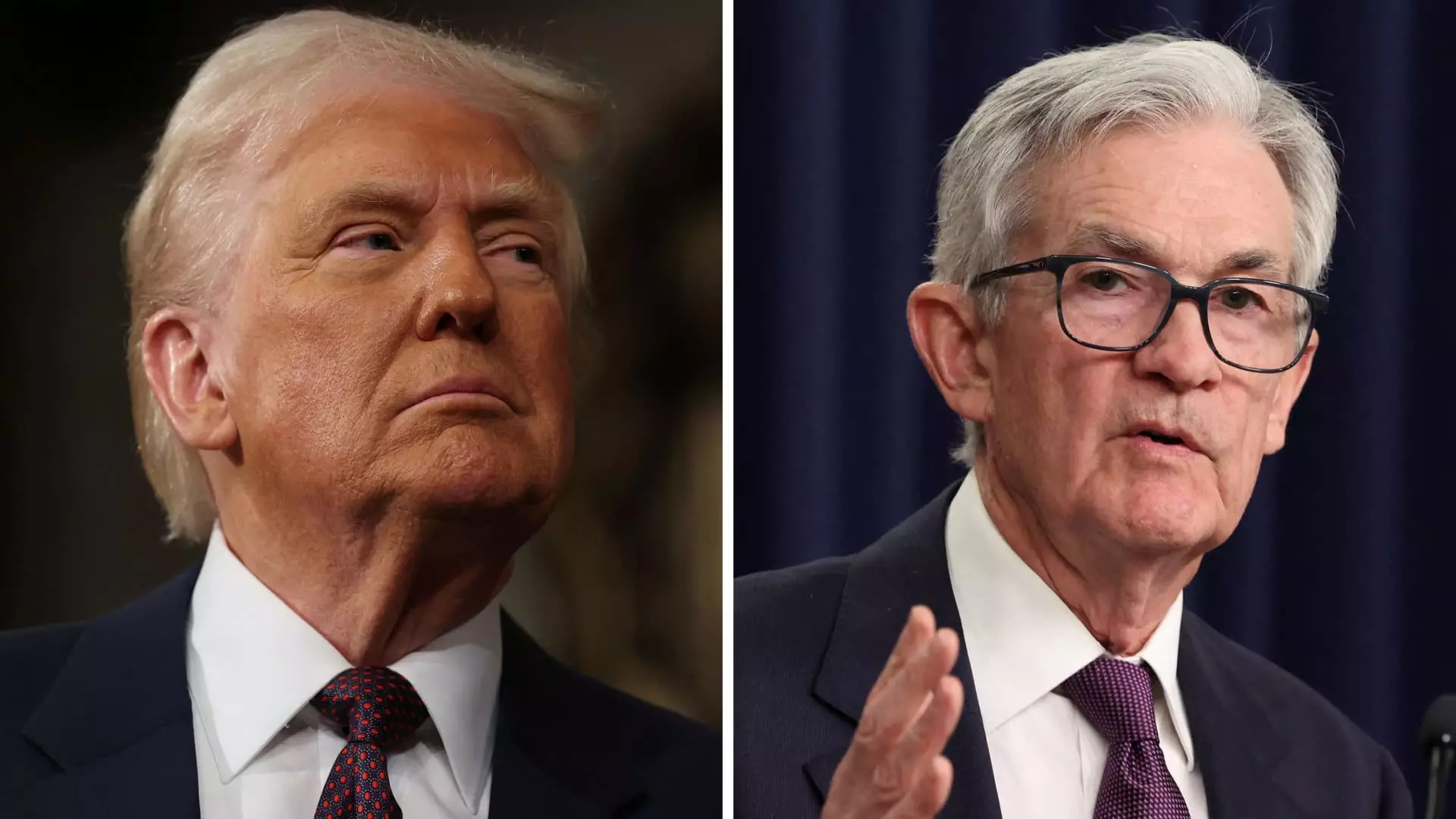In a surprising twist of events, former President Donald Trump’s recent social media outburst called for the Federal Reserve to slash interest rates. This certainly isn’t Trump’s first foray into the realm of economic critique, but it raised eyebrows when he alluded to a possible termination of Federal Reserve Chair Jerome Powell. Trump pointed out that, unlike the U.S., the European Central Bank is actively cutting rates to stimulate growth. However, what he fails to acknowledge is the complexity of the economic landscape in which the Fed operates. Such casual suggestions from someone who once held the highest office in the land carry both weight and consequences, which deserve deeper scrutiny.
The Influence of Tariffs
Trump’s criticism coincided with comments made by Powell addressing the convoluted challenge posed by the administration’s tariffs. The Fed is indeed in a precarious position, straddling the fine line between managing inflation and fostering economic growth. Powell’s admission that these tariffs complicate Fed policy decisions is no small matter. Political whims should not dictate monetary policy; yet, Trump’s tweets demonstrate an alarming disregard for that principle. Economic policy should be shaped by data and long-term vision—not impulsive reactions to perceived slights or unfavorable outcomes.
History Repeats Itself?
Trump’s call to action has eerie echoes of past administrations meddling in the independence of the Fed. By suggesting Powell’s ousting, Trump potentially invites a host of detrimental consequences. Federal Reserve independence is a cornerstone of credible monetary policy, allowing it to make tough decisions without the short-sighted pressures typical of political agendas. This persistent ambiguity about Powell’s future could instill panic, rattle investors, and destabilize markets. Do we really want to set a precedent where economic policy is dictated by tweets and soundbites?
Late to the Party
What’s particularly frustrating is Trump’s insistence on calling Powell ‘late’ all while ignoring the global complexities surrounding monetary decisions. Economic conditions shift and evolve—one-size-fits-all solutions like arbitrary interest rate cuts can yield disastrous effects. Trump’s cavalier attitude towards monetary policies risks endorsing a mindset of knee-jerk reactions rather than well-thought-out strategy. Is it too much to expect a former president to at least consider the nuances of economic currents before making such sweeping statements?
The Populist Playbook
Trump’s actions encapsulate a populist strategy that seeks to shift blame rather than promote accountability. By vilifying Powell and the Federal Reserve, he diverts public attention from broader structural issues. The reality is that the U.S. economy hasn’t fully recovered from crises past, and pointing fingers won’t magically resolve underlying problems. For any enduring economic recovery, constructive dialogue and collaboration among policymakers is essential.
In a landscape marked by misinformation and an abundance of sensationalism, it becomes crucial to critically examine who we trust with our economic future. Trump’s recent posts may be as entertaining as they are alarming, leaving us to ponder the resilience of our democratic institutions amid such turbulence.

